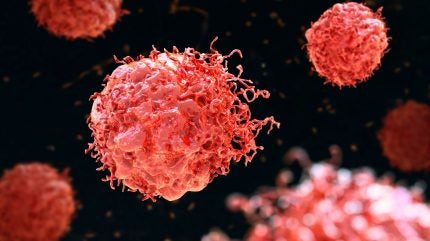
The US Food and Drug Administration (FDA) has granted orphan drug designation (ODD) to Abdera Therapeutics’ ABD-147, a treatment aimed at neuroendocrine carcinoma.
The biologic therapy is created to deliver the radioisotope Actinium-225 (225Ac) to tumours expressing the DLL3 protein.

Discover B2B Marketing That Performs
Combine business intelligence and editorial excellence to reach engaged professionals across 36 leading media platforms.
This protein is found on the neuroendocrine tumours’ surface but is rarely expressed on the normal cells or tissues’ surface.
The ODD status is expected to provide Abdera with benefits including tax credits, user fee exemptions and a potential seven years of market exclusivity post-approval.
The company is set to commence a first-in-human Phase I clinical trial of ABD-147 in 2024.
The trial will involve patients with small cell lung cancer (SCLC) or large cell neuroendocrine carcinoma (LCNEC) who have previously undergone platinum-based therapy.

US Tariffs are shifting - will you react or anticipate?
Don’t let policy changes catch you off guard. Stay proactive with real-time data and expert analysis.
By GlobalDataABD-147’s targeted approach utilises Actinium-225, a potent alpha-emitting radioisotope, to selectively attack solid tumours expressing the delta-like ligand 3 (DLL3) with high affinity.
Abdera Therapeutics chief medical officer Philippe Bishop stated: “Neuroendocrine carcinomas, including SCLC and LCNEC, are aggressive and challenging to treat effectively with current systemic therapies.
“By delivering a potent radioisotope to neuroendocrine tumours expressing DLL3 with custom-engineered PK properties, we believe ABD-147 has the potential to become a best-in-class DLL3-targeting treatment for aggressive neuroendocrine tumours.
“Along with FDA recently granting fast track designation to ABD-147 for the treatment of patients with extensive stage small cell lung cancer (ES-SCLC) who have progressed on or after platinum-based chemotherapy, this orphan drug designation for neuroendocrine carcinoma further underscores the potential of ABD 147 development to offer a significant advantage beyond approved drugs.”




